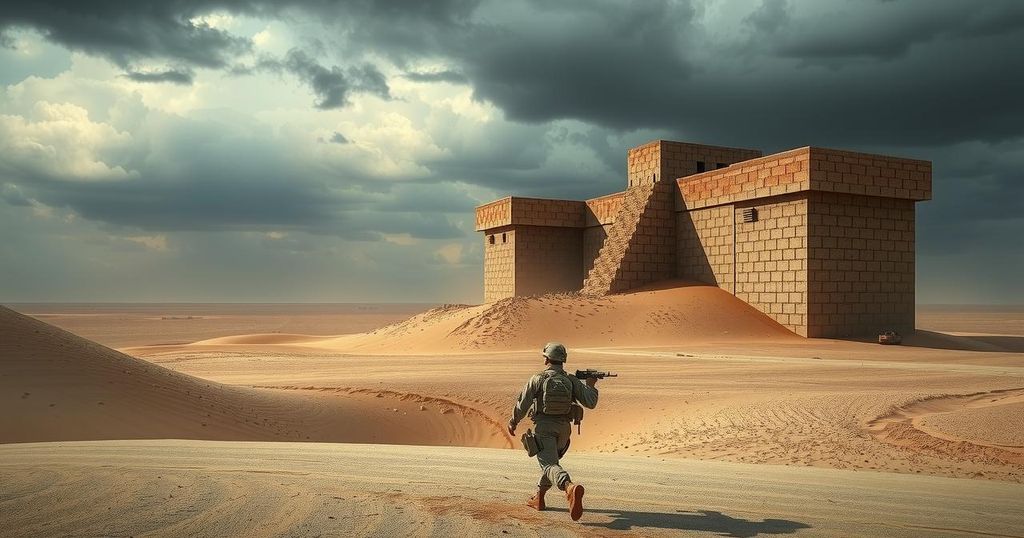The Sudanese army has seized a major stronghold in northern Khartoum from the RSF, aiming for total control of the capital. President Abdel Fattah Al-Burhan ruled out ceasefire negotiations unless the RSF disarms. The violence has caused extensive casualties and infrastructure damage, complicating the political landscape as a technocratic government is being proposed.
The Sudanese army has asserted control over a significant stronghold previously occupied by the Rapid Support Forces (RSF) in northern Khartoum, signifying its intent to consolidate authority in the capital region. Army spokesperson Nabil Abdullah disclosed the completion of operations in the Abu Quta area, a key base for the RSF led by commander Mohamed Hamdan Daglo, known as “Hemedti.” This military advancement may lead to the army securing the entirety of northern Khartoum, pivotal for controlling the Sudanese capital alongside Khartoum and Omdurman.
Since April 2023, the ongoing conflict between the Sudanese army and the RSF has escalated. Recent offensives have aimed at regaining full dominion over Khartoum, with military sources indicating progress towards the central areas. Notably, the army has reportedly secured Al-Rumaila and industrial regions in central Khartoum, narrowing the proximity to the RSF-controlled Presidential Palace.
The intense conflict has resulted in significant casualties and humanitarian crises, displacing more than 12 million people and crippling Sudan’s infrastructure. Amidst these developments, Abdel Fattah Al-Burhan, President of the Sudanese Sovereign Council, declared that peace discussions with the RSF cannot occur until they disarm. Al-Burhan emphasized, “We will not accept any cease-fire unless the Rapid Support Forces withdraw from all states…” His statements underscore a firm military stance against any premature truce.
Al-Burhan also expressed intentions to form a technocratic government, hinting at selecting a civilian prime minister. Furthermore, he dismissed the prospect of the National Congress Party, linked to former President Omar al-Bashir, re-assuming power, urging its members to avoid exploiting the current turmoil. He stated, “Stay away from the bidding if you are patriots… you will not find an opportunity to rule the country over the blood of the Sudanese.”
Al-Burhan’s comments towards other political factions indicate that they are equally viewed as adversaries alongside the RSF, suggesting that any cooperation hinges on their distancing from the RSF’s influence. In conclusion, the Sudanese army continues its campaign to reclaim Khartoum, while political maneuvers unfold amidst a precarious humanitarian situation.
The conflict in Sudan, primarily between the military and the Rapid Support Forces, has roots extending back to the power struggles following the ousting of former President Omar al-Bashir. Since April 2023, violence has surged, resulting in widespread casualties and a humanitarian crisis. The military has made significant territorial gains, aiming to stabilize the capital and restore governance while dismissing dialogues with factions perceived as threats. The ongoing instability poses severe challenges for the people of Sudan, including mass displacement and destroyed infrastructure, necessitating coordinated political and military efforts to establish a sustainable resolution.
In summary, the Sudanese army’s recent territorial gains against the RSF mark a critical juncture in the ongoing conflict. The insistence on disarmament before negotiations by military leaders underscores the severity of the situation. Simultaneously, the political landscape is shifting, as plans for a technocratic government emerge amid the chaos. The overall situation remains dire, with immense humanitarian challenges still facing the Sudanese population.
Original Source: www.dailynewsegypt.com






